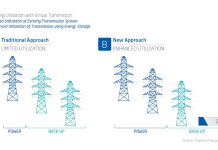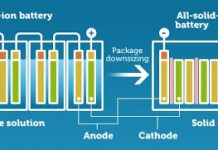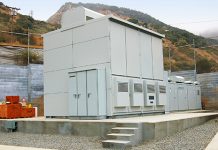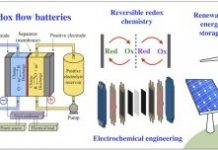Tom Konrad CFA
![512px-ESB-Exide%27s_Sundancer_electric_car[1].jpg](http://www.altenergystocks.com/wp-content/uploads/2017/08/512px_ESB_Exide_27s_Sundancer_electric_car_1_.jpg) |
| Exide’s Sundancer Electric Car. Photo by Frank Lodge, EPA. Public Domain |
NOTE: Since this article was first published, Exide Technologies (NASD:XIDE) stock has risen 22% from $2.31 to $2.82, but much of that rise was due to media confusion about a positive Credit Suisse research report on the unrelated Indian company Exide Industries, Ltd. Details here.
Exide Technologies (NASD:XIDE) is shutting down its battery recycling plant in Frisco, Texas, and selling the surrounding 180 acres to Frisco Community Development Corp. for $45 million. The move is part of Exide’s ongoing multi-year restructuring, and is good news in that there is a ready buyer for the land. Exide will retain ownership of the plant itself, and will proceed with environmental clean-up. Years of this protracted restructuring and earnings misses have XIDE in the bargain basement, with a trailing P/E ratio if 4.2, a forward P/E of 4.7, and a price to book ratio of just 0.43.
Insiders seem to think the stock is cheap here. Although there has only been one buy (at $3.02 in February), they are holding on to almost all of the stock they get from exercising options. At below half book, and plenty of liquidity ($1.34 cash per share even before the additional $0.58 per share infusion from the sale of the Frisco land, for a total of $1.92 per share), Exide seems ready for a strong rebound on any hint of good news, such as an upside earnings surprise when the company reports on June 8. It’s hard to see how even an earnings miss could send the stock down much from the current price of $2.31. After all, the company is profitable, has no need to go to the markets for additional equity funding, and the stock price is closing in on cash on hand.
Stop-Start Ready to Start
I own Exide because I consider it a cheap way to speculate on the widespread adoption of stop-start technology. Stop-start is the less glamorous but far cheaper cousin of hybrid vehicle technology, and is taking off by stealth as automakers look for inexpensive ways to meet increasingly stringent fuel efficiency requirements.
Stop-start vehicles generally use much larger, more robust lead acid batteries than those used in traditional vehicles, although the lack of durability of these batteries is leading auto manufacturers to look at alternative technologies such as battery-ultracapacitor hybrids (from Maxwell Technologies (NASD:MXWL) in conjunction with traditional lead-acid battery makers), lithium-ion batteries, and lead-carbon (PbC) batteries from start up Axion Power (OTC:AXPW.)
All three new technologies are likely to grab slices of the enormous stop-start pie from lead-acid batteries, but only relatively expensive lithium-ion batteries would wholly displace lead-acid manufacturers. As the second largest lead-acid battery manufacturer worldwide (the first is Johnson Controls (NYSE:JCI),) Exide seems set to benefit from the trend. Exide is also well placed to benefit from the adoption of Axion’s PbC technology, since the two companies have worked closely together in the past.
That said, I own Maxwell and Axion as well as Exide, since I think all three are quite cheap and will benefit from the stop-start opportunity. (See this recent article on Maxwell.) The only reason I don’t currently own Johnson Controls is that I am uncomfortable with the company’s negative free cash flow. With a trailing P/E of 12.5, a forward P/E of 9, and a price to book ratio of 1.8, JCI is not expensive, but it’s not nearly as deep in the bargain basement as Exide.
Disclosure: Long XIDE, AXPW, MXWL
DISCLAIMER: Past performance is not a guarantee or a reliable indicator of future results. This article contains the current opinions of the author and such opinions are subject to change without notice. This article has been distributed for informational purposes only. Forecasts, estimates, and certain information contained herein should not be considered as investment advice or a recommendation of any particular security, strategy or investment product. Information contained herein has been obtained from sources believed to be reliable, but not guaranteed.








